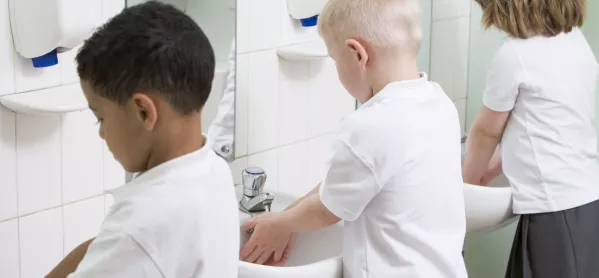“The government and the NHS are well-prepared to deal with this virus.”
So began the wording of a poster sent to every school last February, as we first began to deal with the impact of Covid on schools. If we’d known then what we know now, what on earth would we have done?
To my shame, I practically disregarded the email. A few comments about travellers returning from China - which didn’t affect us - and a line about washing your hands after you sneeze: nothing new there, and advice wasted on schoolchildren, surely?
In fact, when the office manager asked if the email should be forwarded on to staff, my reply was that there was “not much there that’s of interest, really”.
Coronavirus: No idea of the turmoil that lay ahead
A week later, and I was reluctant to send out the formal advice from the local authority, because it felt a bit like creating a mountain out of a molehill.
Families would be spooked by such information coming from us, and might start to worry about whether school was safe. As far as we were concerned - and according to all the government advice - we were all to carry on as normal.
We took 40 children to London, to pack into the O2 arena with thousands of others, as part of the Young Voices concert series - an event that would seem horrifying now, but at the time was run-of-the-mill. If someone had suggested that this virus might lead to the cancellation of the same events a year later, what turmoil would we have foreseen?
Things that seemed so normal then seem so strange one year on. In the week leading up to half-term, we led tours of candidates from all number of different places, as we prepared to recruit a new teacher. We held disco nights in the school hall - more than 100 children in a hot, sweaty melee - indoors, with scant ventilation. We all attended a joint staff meeting with six other schools, mixing staff, and probably sharing teaspoons and biscuit plates without a care in the world.
‘Handwashing palaver coming our way’
During the half-term break, more information came though, and I reported the latest guidance to my admin team with a flippant tone: “Handwashing palaver coming our way.”
I remember being apologetic to staff as I explained that we would introduce handwashing after every breaktime, and stopping early at lunchtimes, in an effort to do the right thing. Or was it being seen to do the right thing? On reflection, I’m not sure.
I could see the problems that the handwashing would cause: lessons cut short, queues at sinks, mess in the toilets, paper towels aplenty, and then the inevitable complaint from one parent or another that their child had wet sleeves or cold hands or was allergic to the soap. It all seemed such an inconvenience - from my position of such naivety.
Even a week before school closures were announced, we had no idea what was about to hit us.
I met with my leadership team to plan for interviews the following day, and I delayed our discussion slightly to make a hypothetical plan about possible closures because of the coronavirus. I wasn’t expecting a full closure; my greater concern was teachers having to isolate, leaving us short-staffed.
If anything, I said to my team, they’ll just add a week or two to the Easter break. And so our first Covid action plan was drawn up, on a side of A4 in my rapid scrawl. It hardly seemed worth typing it up at the time.
Given how rapidly things changed over the subsequent few days, weeks and now months, it probably wasn’t.
Michael Tidd is headteacher at East Preston Junior School in West Sussex. He tweets @MichaelT1979
